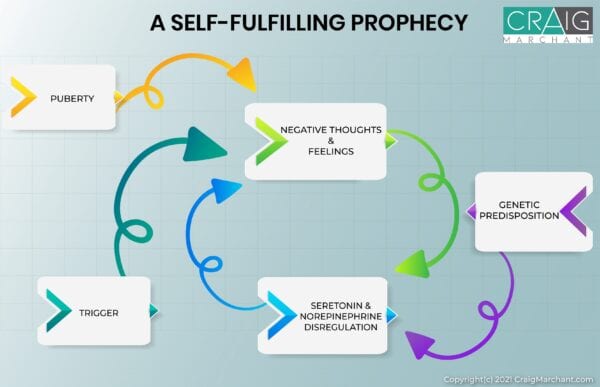Grief and Children
The death of a loved one can cause so many emotions and feelings. As adults, we try and take the positive, remembering the good times rather than the bad. The grief process can vary from individual to individual.
At least, that’s how I chose to look at it when my Grandmother passed away a few years ago—a celebration of her life. I prefer to remember that loveable woman who adored her grandchildren and great-grandchildren and Christmas, let’s not forget that. Her last weeks alive were spent in the hospital and when I saw her, she looked so frail and fragile. While I remember it well, I’m choosing to remember the good times.
The word funeral to me has a lot of negativity associated with it. It’s fair to say that the way I treated my grandmother’s death vs that of my grandfather is opposites. Why? Because I was only a young teenager when my grandfather passed away, and I didn’t know then, what I now know. I didn’t know how to manage my grief and I let it consume me.
It’s a safe bet to say that children are selfish when it comes to death. Now before you blow up, it’s not your standard definition of selfish. Children are often very “me” centric. It’s how it affects them more than worrying about others. A lot of people showed up for my grandfathers funeral, and I was so self-absorbed that I didn’t think at the time that everyone had lost someone remarkable and it wasn’t just about me.
Several researchers have studied children and adolescent development in-depth and have defined the age range between 6 and 14 as the most critical development phase[1]. On average puberty strikes from around 11 years old for females to 12 years of age for males. My understanding makes the ages of 11 thru 14, the most critical for children due to both emotional and physical changes.
It doesn’t help that we are not teaching our kids about grief and giving them the tools to deal with it. That funerals are celebrations of life and that while it’s ok to be sad and miss them, we shouldn’t dwell on the last images of them which may not be pleasant. We should try and remember those good times.
You know I’ve universally blamed my grandfather’s death as the starting or defining point of my mental health illnesses. I now have an alternate theory that I have come up with. That while it was a contributing factor, I was predisposed genetically to mental illness. My extreme negativity that came about during my most critical years caused my mental illness’s chemical side to kick in. That caused further negativity on an emotional level creating a catch 22 scenario or a self-fulfilling prophecy. About this, I’ll delve more in-depth in a future article.

It is generally known and well accepted that there are five stages of grief.
These being:
- Denial
- Anger
- Bargaining
- Depression
- Acceptance
It is essential to know that you may not necessarily have each stage distinctly; it might be a tiny part of your overall experience or not a part at all. Everybody is different, and each process grief in our unique ways. It is even possible that the order will be different from one person to the next.
There is also no universally accepted time frame that you can attach to the grief process.
I’ve got a link to a good article/explanation on the grief process, there is no need for me to reproduce it – I shall link it here[2].
Should it continue on for a long period or it is interfering in your daily life, it might be worth having a chat with a psychologist or other professional.
Takeaways
The key takeaways from this article are that you should keep a close eye on your children should a family tragedy strike and that it is worthwhile discussing grief with them in more detail. Let them know it’s perfectly acceptable to mourn for the loss of a loved one but do not let it take control of our lives. I often find saying “Grandma wouldn’t want you to feel like that now would she?” – it seems to hit home quite well.
